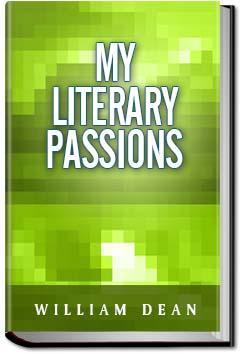UNLIMITED Audiobooks and eBooks
Over 40,000 books & works on all major devices
Get ALL YOU CAN for FREE for 30 days!
My Literary Passions
William Dean Howells
How does All You Can Books work?
All You Can Books gives you UNLIMITED access to over 40,000 Audiobooks, eBooks, and Foreign Language courses. Download as many audiobooks, ebooks, language audio courses, and language e-workbooks as you want during the FREE trial and it's all yours to keep even if you cancel during the FREE trial. The service works on any major device including computers, smartphones, music players, e-readers, and tablets. You can try the service for FREE for 30 days then it's just $19.99 per month after that. So for the price everyone else charges for just 1 book, we offer you UNLIMITED audio books, e-books and language courses to download and enjoy as you please. No restrictions.
We children who were used to the free range of woods and fields were homesick for the country in our narrow city yard, and I associate with this longing the 'Farmer's Boy of Bloomfield,' which my father got for me. It was a little book in blue cloth, and there were some mild woodcuts in it. I read it with a tempered pleasure, and with a vague resentment of its trespass upon Thomson's ground in the division of its parts under the names of the seasons. I do not know why I need have felt this. I was not yet very fond of Thomson. I really liked Bloomfield better; for one thing, his poem was written in the heroic decasyllabics which I preferred to any other verse.
IX. POPEI infer, . . . Read More
Try now for FREE!

"Love your service - thanks so much for what you do!"
- Customer Cathryn Mazer
"I did not realize that you would have so many audio books I would enjoy"
- Customer Sharon Morrison
"For all my fellow Audio Book & E-Book regulars:
This is about as close to nirvana as I have found!"
- Twitter post from @bobbyekat



Community Reviews
A literary autobiography of the novelist and critic W. D. Howells, the "father of American realism," tracing the development of his taste from Oliver Goldsmith at eight or nine to Leo Tolstoy at over fifty. The 1895 edition also includes his long essay "Criticism and Fiction," which advocates for "d